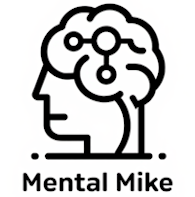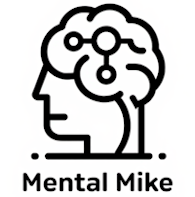In recent years, coaching has emerged as a popular alternative or complement to clinical treatment in addiction recovery. While coaching can offer real benefits- accessibility, empowerment, action-focused accountability -it is often misunderstood, both by potential clients and mental health professionals.
At the Unified Flux Model, we embrace the strengths of integrative recovery coaching, but we also believe in being honest about its limitations. Our 26-week program draws from coaching methods and clinical science, bringing together somatic trauma work, neurobiological repair, quantum energetics, and personal transformation.
This blog explores five common misconceptions about coaching-based recovery and what the science, ethics, and real-world results actually say.
Misconception #1: Coaching Is Just Cheaper Therapy
Many assume that recovery coaching is simply therapy with a discount price tag. While both disciplines support growth, they serve fundamentally different purposes.
Therapy is a licensed clinical practice designed to diagnose, treat, and manage mental health conditions. Coaches, by contrast, do not (and should not) offer clinical diagnoses or treat psychological disorders. Instead, coaching focuses on goal-setting, behavioral change, and forward movement (Grant, 2017). Coaches can be powerful allies in action and self-empowerment but are not a substitute for trauma processing or complex comorbidity management.
At UFM, we bridge this divide by equipping coaches and clinicians alike with tools that honor both the neuroscience of trauma and the agency-based principles of personal growth.
Misconception #2: Coaching Is Only for High-Functioning Clients
Another common myth is that only “stable,” “motivated,” or “high-functioning” individuals benefit from coaching. In reality, many people in early recovery thrive with coaching when it is trauma-informed, spiritually grounded, and delivered within a structured framework that respects neurobiological limits.
The key is attunement - recognizing that dysregulated nervous systems require more than pep talks. They need safety, rhythm, and connection. Emerging research on recovery-oriented coaching emphasizes the importance of somatic awareness, motivational interviewing, and relationship-centered support as foundational elements (Passmore et al., 2020).
Coaching alone may not be appropriate for someone in active crisis, but when integrated into a model like UFM, it becomes a meaningful and accessible path toward coherence.
Misconception #3: Coaches Don’t Need to Understand Trauma
This misconception is not just false, it’s dangerous.
Without trauma literacy, a coach may unintentionally retraumatize a client by misinterpreting resistance, emotional numbing, or self-sabotage as laziness or lack of commitment. This can shame the client and disrupt the recovery process.
Neuropsychological research shows that trauma alters memory, impulse control, and executive function (Teicher & Samson, 2016). If a coach isn’t trained to recognize this, they may push clients beyond their regulatory capacity.
That’s why the Unified Flux Model trains its coaches in somatic attunement, polyvagal-informed communication, and energy coherence techniques so they can walk beside clients with compassion and insight, not just accountability.
Misconception #4: Coaching-Based Recovery Ignores the Body
Many coaching models emphasize mindset, language, and beliefs - but leave the body behind. This creates a split between willpower and physiology that often leads to relapse.
At UFM, we teach that the body is the interface of recovery. Through practices like breath regulation, micro-alignment rituals, and quantum field coherence, we help clients reconnect with their nervous systems and stabilize at the somatic level.
This approach aligns with recent findings that body-based interventions are essential for trauma healing and substance use recovery (van der Kolk, 2014; Ogden & Fisher, 2015). A coaching model that bypasses the body may offer insight, but not integration.
Misconception #5: Coaching Is a Shortcut or a Gimmick
Too often, coaching is dismissed as unscientific, overly positive, or even exploitative. And to be fair, some programs do lean heavily on motivational hype without substantive depth.
But when coaching is rooted in neuroscience, energetics, and ethics, it becomes a transformative tool. UFM coaching is not a shortcut. It is a deep recalibration of energy, identity, and embodied presence.
Our model is evidence-informed, clinically vetted, and spiritually integrated. It was refined through a pilot study and continues to evolve based on lived client outcomes. We don’t promise quick fixes, but we do offer real pathways to transformation, guided by science and soul.
Conclusion: Coaching That Respects the Whole Person
The Unified Flux Model stands apart because it doesn’t force a choice between therapy, coaching, or spirituality. Instead, it integrates all three.
We believe in trauma-informed coaching that respects the physics of the body, the neurobiology of emotion, and the spiritual nature of recovery. If you've been unsure about coaching, or dismissed it altogether, it may be time to explore what coaching can be when done right.
Healing requires more than insight. It requires coherence.



